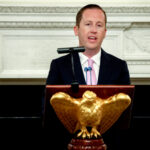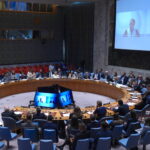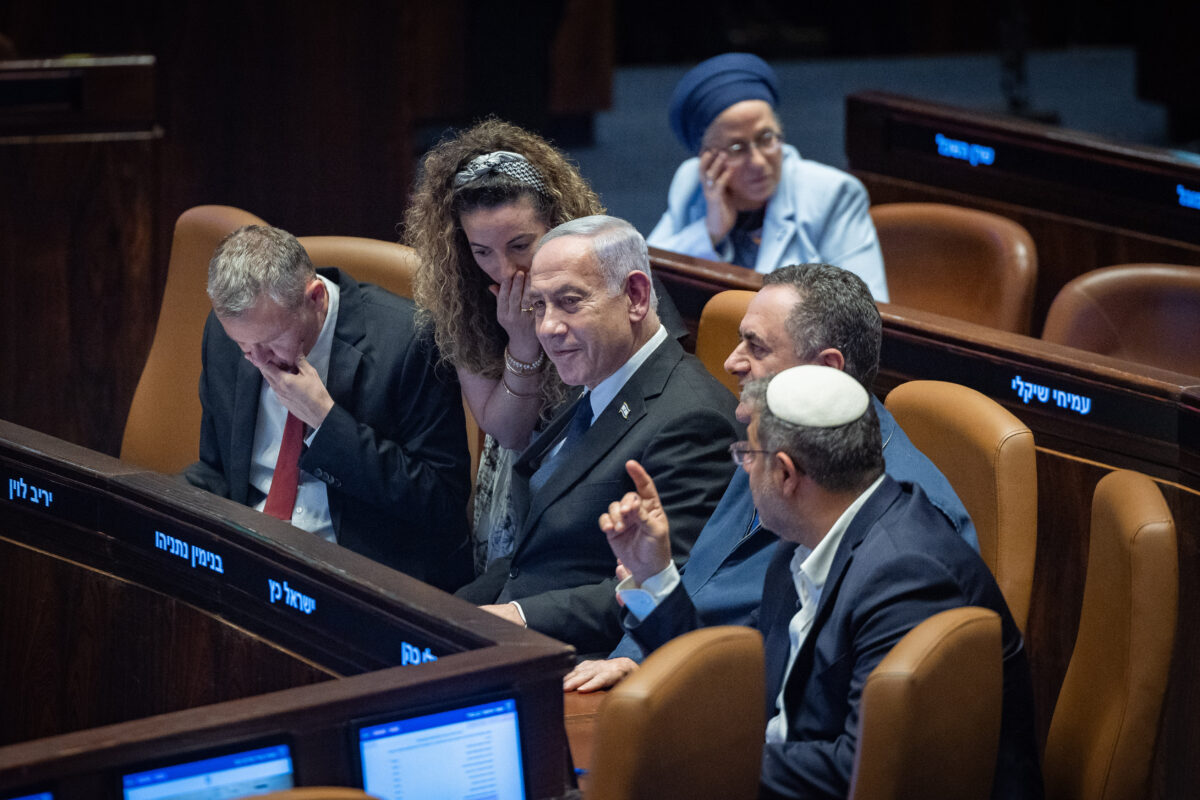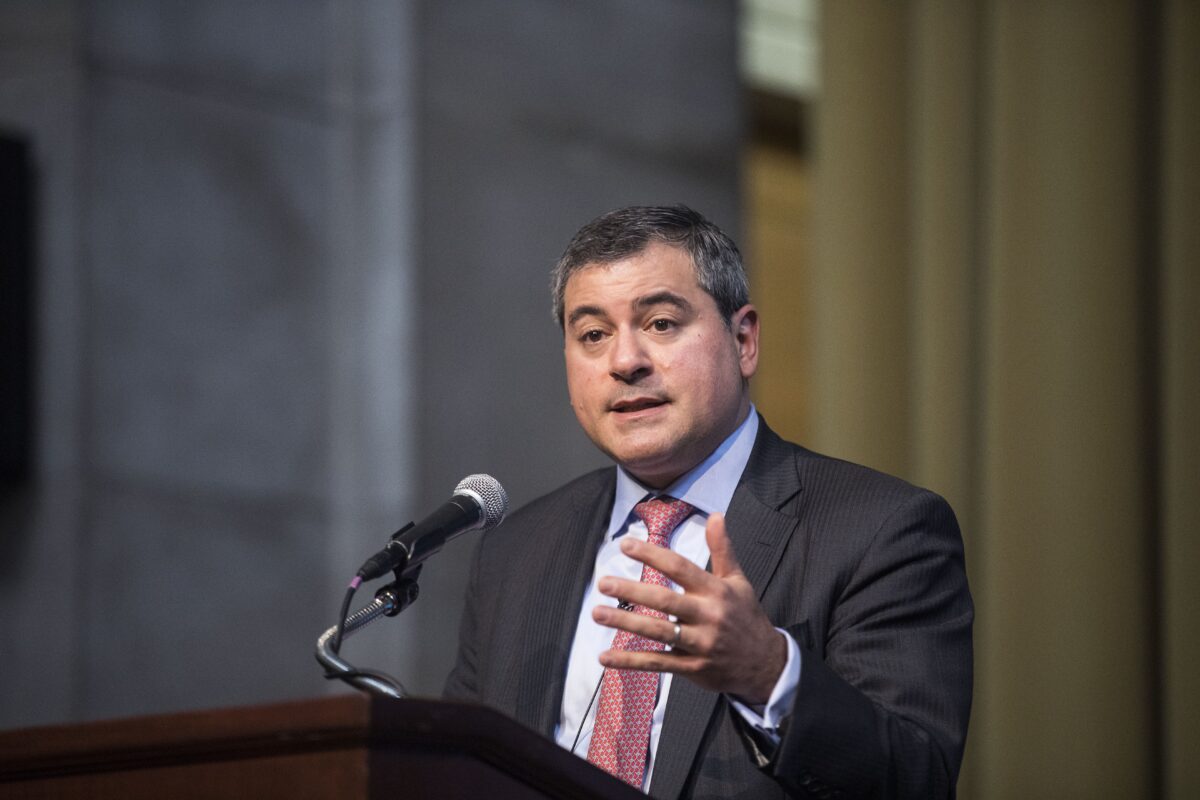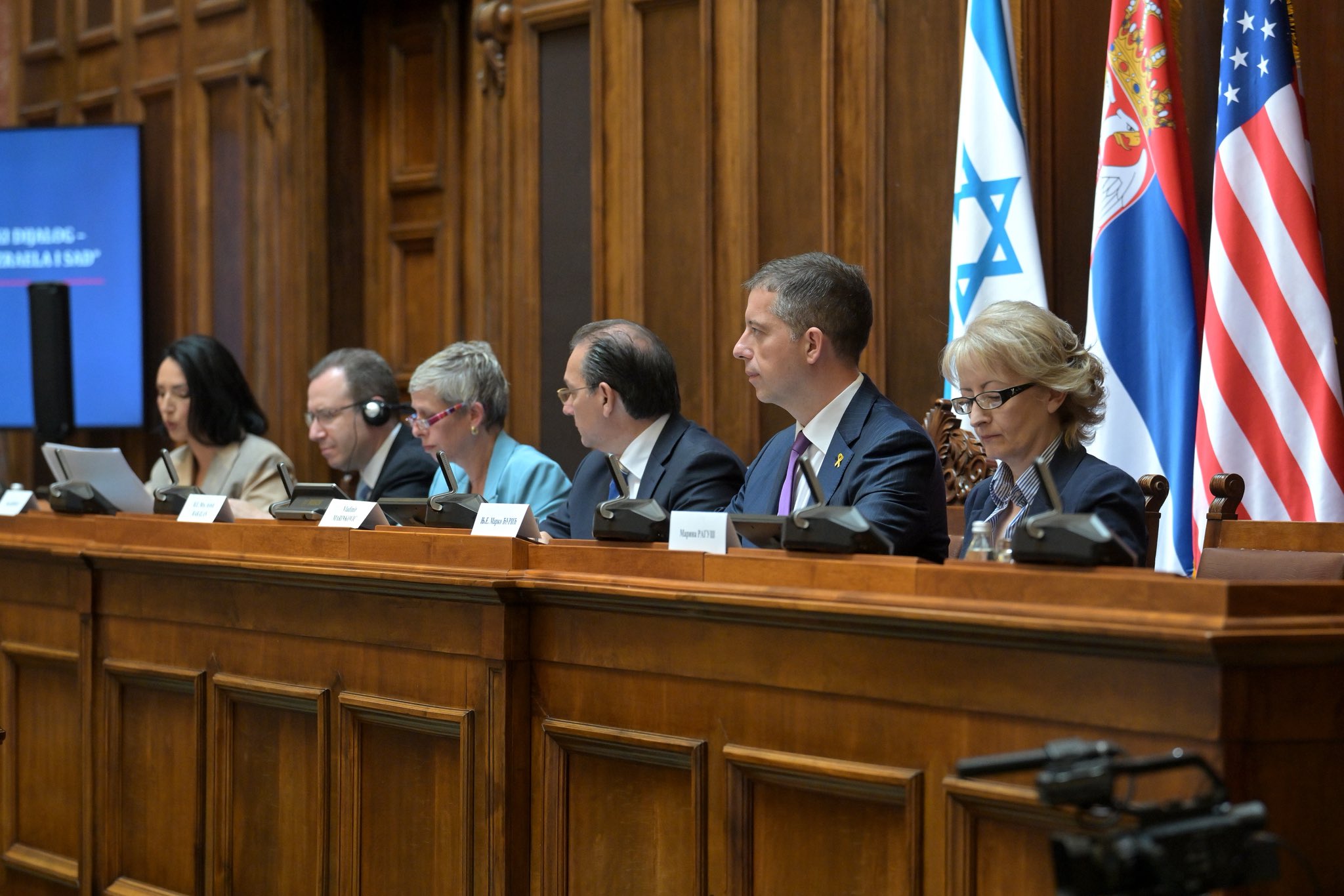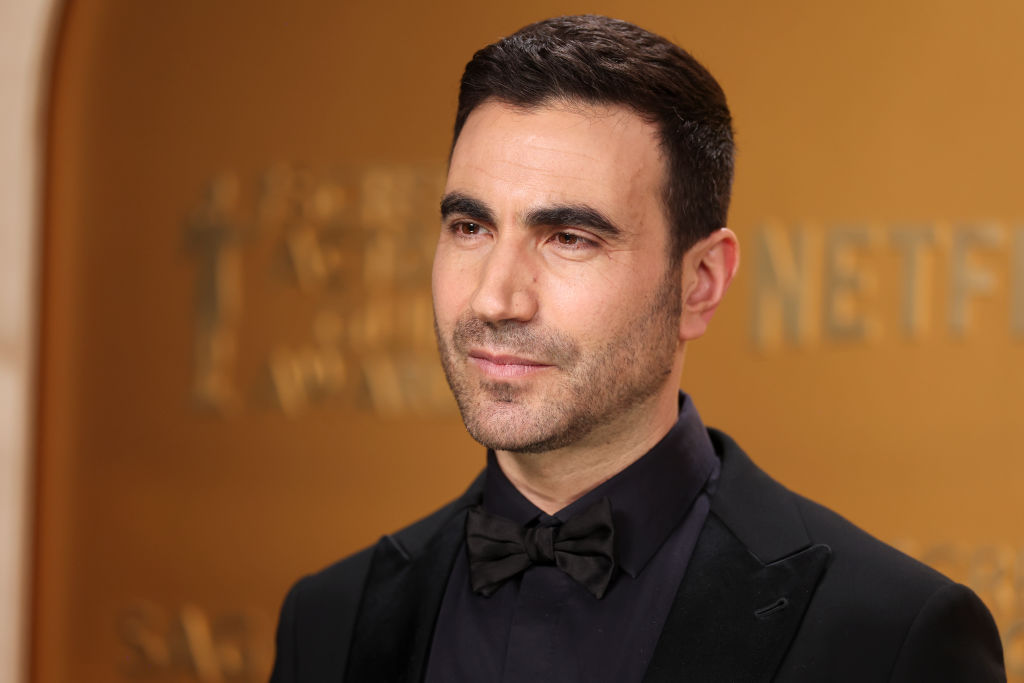Boehler also addressed criticisms of his direct talks with Hamas
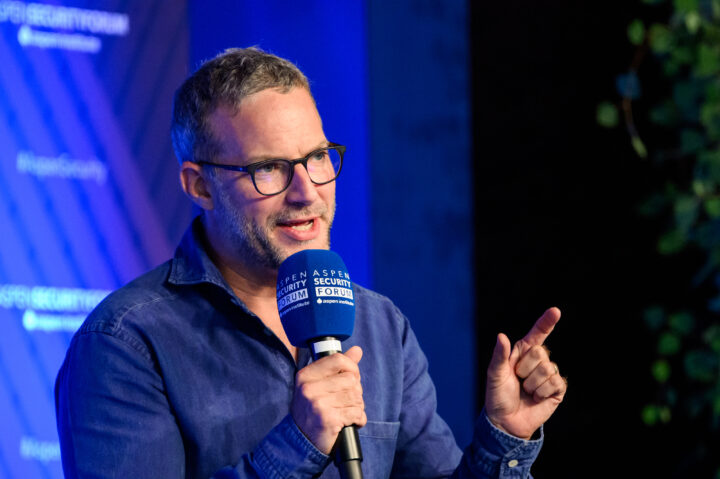
Aspen Security Forum
U.S. hostage envoy Adam Boehler speaks at the Aspen Security Forum on July 17, 2025.
Aspen, Colo — U.S. hostage envoy Adam Boehler said at the Aspen Security Forum on Thursday that there had been “some movement forward” recently toward a ceasefire and hostage-release deal with Hamas. He also addressed criticisms of his direct talks with Hamas.
“It’s closer than it’s been, and if it doesn’t happen, in my strong opinion it would be continued hard-headedness from Hamas, in which case Israel will continue to take action, as they should,” Boehler, the only Trump administration official to address the conference, said. “I am more optimistic than I have been in a while about that.”
Boehler said that Israeli Prime Minister Benjamin Netanyahu’s success in striking Iran has given Netanyahu the political capital and positioning at home to potentially seal a deal. “In that way, there’s never been a better time.” He said Israel is “leaning in a lot” and that finalizing a deal gives Netanyahu the opportunity to further burnish his reputation in history.
By contrast, Boehler said that Hamas is “very hard-headed” in talks, which has been frustrating for negotiators and leads the terrorist group to reject deals that seem to be in its interest.
“With [former hostage] Edan Alexander, Hamas had multiple times where they probably lost leverage over time. Look at the whole war. They continue to hold out. Israel continues to kick their ass. And yet they still think they have leverage,” Boehler said.
Asked about his direct negotiations with Hamas, which were controversial, especially among Israeli officials who were largely kept out of the loop, Boehler downplayed the extent of the tension between the U.S. and Israel on the issue.
“There was no unilateral deal ever possible. While that’s an American citizen, Edan, we were always working with the Israeli side,” Boehler said. “Now whether or not — I think the question is whether or not discussions on that side were [conducted with Israeli involvement], but there would be no deal that would be possible that wasn’t coordinated with the Israelis.”
Boehler also emphasized that his job is to negotiate with people who he knows are “bad guys.”
“I’m under no illusions, ever. These are bad people. They’re bad guys,” Boehler said. “I’m not making a moral evaluation. I don’t want to go get beers with the guys. What I want is Americans out now, and I want them never to take them again.”
He said he tries to focus on what each side wants and where there might be commonalities that both sides can pursue.
Boheler added that he does not believe that meeting with someone is a concession itself. He argued that it can be more difficult to understand what an adversary actually wants in the present if he is relying on others’ characterization of their views, adding that direct talks can also move negotiations along more quickly.
The U.S. envoy argued that earlier and stronger U.S. action in the post-Oct. 7 hostage crisis — “in terms of being more aggressive in our support of Israel” — could have “made a difference if we had leaned in more at the beginning — I believe that is likely — versus holding back.”
“I’m not making that judgement by myself, I’m making that judgement from discussion[s] on the military side too,” he continued. “Are there things we could have done better there that would have made a difference for American lives and for Israeli lives? Yeah, of course.”
Boehler said that the U.S. strikes on Iran will help give him leverage in hostage talks by proving that Trump is serious about the things he says and is willing to back them up with force.
“What do I need to say? ‘You don’t want to listen to the president? One of his core platforms is getting Americans out. Look what happens,’” Boehler said. “He said something [and followed through] … it’s so important to have that credibility. And that kind of credibility doesn’t just bring Americans home. It makes people think twice before they take them.”
Boehler said that sometimes there is no negotiating path with terrorist groups or other adversaries, and that force is the only option, but that it’s worth attempting to see if there is a diplomatic path.
Boehler also repeated the administration’s recent warning to Americans against traveling to Iran for any reason.
“You sort of think that’s like, ‘Duh,’” Boehler said, to chuckles from the audience. “But you’d be surprised.”
He warned that it’s “very sensitive” for the U.S to compensate rogue actors for the release of American hostages because that can incentivize further hostage-taking going forward. The administration conducted a prisoner exchange with Russia.
“I’m very, very sensitive to hostage diplomacy because it doesn’t work. You will see we very rarely trade people. It would have to be very unique. Money? Forget about it,” Boehler said.
He said that he sometimes needs to employ “negative incentives,” including threats, as well.
“The president has always stated and oriented toward, ‘I would like a diplomatic solution.’ He told Iran that and then Iran tested it, and then they saw what they got,” Boehler said. “So those things are very important, and I think about the same thing from a hostage perspective.”
Asked about his conversations with hostage families, Boehler said he followed advice from his predecessors to be “authentic and truthful. And so if at that moment you’re feeling something, you can let that show.” He said he also tries to be “extremely responsive” to the families, but also upfront about the prospects for a deal and the potential obstacles.
“Those families have been through way more than I’ve been through. I don’t need to soft-pedal to them, but I owe them this responsiveness and authenticity,” Boehler said. “Their children, family members have been taken away, they’ve been killed. They don’t need bullshit from me. They need somebody that’s going to be honest with them and they can certainly take that.”
Boehler, who was involved in efforts to negotiate the Abraham Accords during Trump’s first administration, said that he believes the accords will grow within the next year, saying that Saudi Arabia had been clear across multiple administrations about its interest in a deal.
“I think that the inherent reasons there was interest there haven’t changed,” Boehler said. He downplayed the strain that the Oct. 7, 2023, Hamas attacks on Israel and the ensuing war have placed on those efforts, noting that the Abraham Accords have “held strong.”
“People make comments publicly, but if you look at the support, it was a totally different Middle East than if we had been in a war years before. And so I feel optimistic,” Boehler said.
Boehler also credited the Israeli government for acknowledging mistakes in its conduct in the war when they happen, noting one such statement issued on Thursday apologizing for an Israeli strike on a church in Gaza.
“I’m sure it was not on purpose and then they will do an investigation and say this is a real issue,” Boehler said.
At the same time, he said that it would be “a very dangerous thing” if Israel were to sway to the whims of global public opinion about its military campaign in Gaza “because they’re fighting for their survival all the time” against a terrorist group embedded in the civilian population.
Plus, Jewish Voice for Peace's political pivot

Tom Williams/CQ-Roll Call, Inc via Getty Images
Brett McGurk, then-White House Coordinator for the Middle East and North Africa, arrives to the U.S. Capitol on Thursday, April 18, 2024.
Good Thursday morning.
In today’s Daily Kickoff, we cover former White House senior official Brett McGurk’s condemnation of Hamas’ repeated refusals to reach a ceasefire agreement, and report on the anti-Israel group Jewish Voice for Peace’s pivot to electoral politics. We report on Israel’s strikes on Syria amid widespread attacks on the Syrian Druze community, and cover the departure of United Torah Judaism from Israeli Prime Minister Benjamin Netanyahu’s ruling coalition. Also in today’s Daily Kickoff: Wally Adeyemo, Ari Aster and Tali Cohen.
What We’re Watching
- This afternoon at the Aspen Security Forum, Adam Boehler, the Trump administration’s special envoy for hostage affairs, is set to take the stage for a one-on-one conversation with CNN’s Kaitlan Collins. Boehler’s appearance comes amid the cancellation of a number of Pentagon officials who had been slated to address the annual Colorado gathering.
- Later in the afternoon, former National Security Advisor Stephen Hadley, The New York Times’ David Sanger and Johns Hopkins’ Vali Nasr will participate in a panel discussion on Iran. Immediately following that session, former Commerce Secretary Penny Pritzker is slated to speak on a panel about international trade and economics.
- At a reception later in the evening, former Deputy National Security Advisor Dina Powell McCormick will speak about the book she co-authored with her husband, Sen. Dave McCormick (R-PA), Who Believed in You? How Purposeful Mentorship Changes the World.
What You Should Know
A QUICK WORD WITH JI’S JOSH KRAUSHAAR
The latest round of fundraising reports for members of Congress paints a concerning picture about the future of the ideological center. Many lawmakers from both parties known for their pragmatism and moderation struggled to raise big bucks for their campaigns, while a number of insurgent candidates on the left and the right wings of their parties scored significant fundraising hauls.
Some of the middling fundraising numbers from experienced, establishment-oriented lawmakers will lead to speculation they are considering retirement.
On the GOP side, Sen. Joni Ernst (R-IA), a senator deeply immersed in national security issues, only raised $723,000 in the last three months — barely inching past two of her Democratic opponents. That’s an underwhelming sum for Ernst, who has typically been a strong fundraiser but has been taking heat from both the right and left. It will only raise speculation about her political future.
Sen. John Cornyn (R-TX), facing a primary challenge from right-wing Texas Attorney General Ken Paxton, also didn’t hit the $1 million mark in fundraising, bringing in just $804,000. Paxton, despite worries about his electability and scandals surrounding him, raised $2.9 million.
In the House, Rep. Mike McCaul (R-TX), the respected former chairman of the House Foreign Affairs Committee, raised just $93,000 for the quarter, with less than $100,000 in his campaign account. While he’s not in a competitive district, that small sum has raised retirement speculation as well.
On the Democratic side, there were some fresh signs that mainstream, pro-Israel candidates aren’t getting quite the same fundraising traction as they have in the past.
CONFERENCE CONVERSATION
McGurk: History of Israel-Hamas talks is ‘being rewritten by people that weren’t involved’
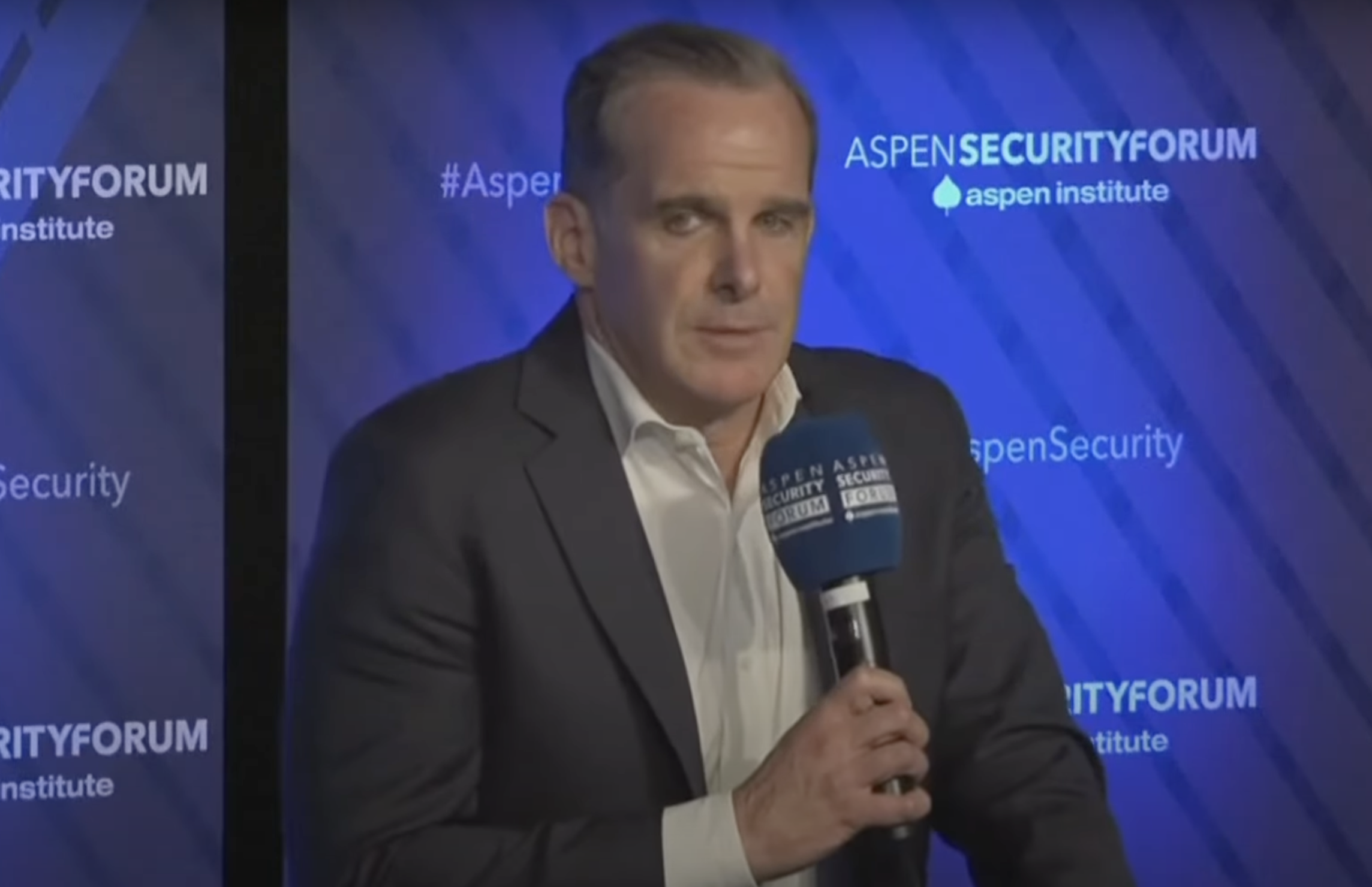
Former U.S. and Israeli officials speaking at the Aspen Security Forum on Wednesday emphasized that Hamas bears responsibility for the failure of hostage release and ceasefire talks, and discussed the possible paths to ending the war in Gaza, Jewish Insider’s Marc Rod reports from the conference. Brett McGurk, the top National Security Council official responsible for the Middle East under the Biden administration, argued on Wednesday that the history of ceasefire talks between Israel and Hamas “is being rewritten by people that weren’t involved in this.”
Missed opportunities: McGurk emphasized that Hamas repeatedly ignored and rejected proposals that fulfilled many of its demands over the course of the last year, arguing that Israel’s attacks on Hezbollah had helped force Hamas’ hand to a temporary ceasefire deal that went into effect in early 2025. “The moral toll of this awful situation tears at the soul of anyone who’s worked on this, anyone,” McGurk said. “But this war could have stopped multiple times if Hamas stopped the war and released hostages — multiple, multiple times.”
Looking ahead: Wally Adeyemo, the deputy secretary of the Treasury Department during the Biden administration, argued on an Aspen panel that postwar reconstruction of Gaza will require new tools, methods and partners.


























































